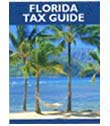by Robert Borges on April 15, 2019
As leaf raking gives way to snow shoveling, then right into spring cleanup and months of lawn mowing, more and more baby boomers are starting to ask themselves, “Does it make sense to rent in retirement?” Really, who wants all that maintenance and upkeep when work is supposed to be a thing of the past? Plus, many empty nesters find themselves in much more house than they actually need, so moving on and downsizing in retirement is often the wisest choice.
When that day comes, should retirees rent or buy?
The benefits of home ownership are well known. You have a set mortgage payment and an investment that increases in value over time. You may even be among the 70% of retirees who go into retirement mortgage-free—in that case staying put, or buying a smaller home with cash could be attractive options. Owning a home also has potential tax benefits. And of course there’s the freedom and flexibility to remodel or redecorate whenever you feel like it, because, well, you own the place.
For some, those benefits plus the added stability that comes with home ownership are enough to definitively answer the “Is it better to rent or own in retirement?” question. Others, though, may be looking for a retirement lifestyle that’s better suited for renters.
Advantages to Renting in Retirement
More options, more free time. And just like that, the leaf raking, the snow shoveling, the lawn mowing...gone! Whether we’re no longer capable of the constant chores and fixes that are part of home ownership, or are just plain tired of them, this is a big factor when considering renting as a senior. As an extension of that, renting in a retirement community allows you to spend all your time golfing, boating, playing tennis, or whatever it is that satisfies your lifestyle. Also for snowbirds, your options and freedom to pick up and head to the Sun Belt (or wherever your heart desires) become much easier without a current home to sell or rent out for extended periods.
Renting may be less expensive. There are plenty of debates to be had and short/long term calculations to be made about the financial benefits of buying vs. renting, but the fact is, mortgage payments, real estate taxes, and costly utility bills add up. Sure, your rent payments won’t go toward any equity, but many economists say you can earn far more investing in the stock market than a house. So if/when you do sell and opt to rent, you’ll have freed up a lot of investment capital. In addition, senior renters eliminate the cost of maintenance and repairs that inevitably come with owning a home.
As you can see, there are pros and cons for both options when deciding to rent or buy in retirement. The circumstances, mindset, current lifestyle, and future plans of retirees often dictate which option is best. If you’re set on selling your house and renting when you retire, PCR features dozens of retirement communities that spotlight some of the finest retirement rentals from all across the country.
